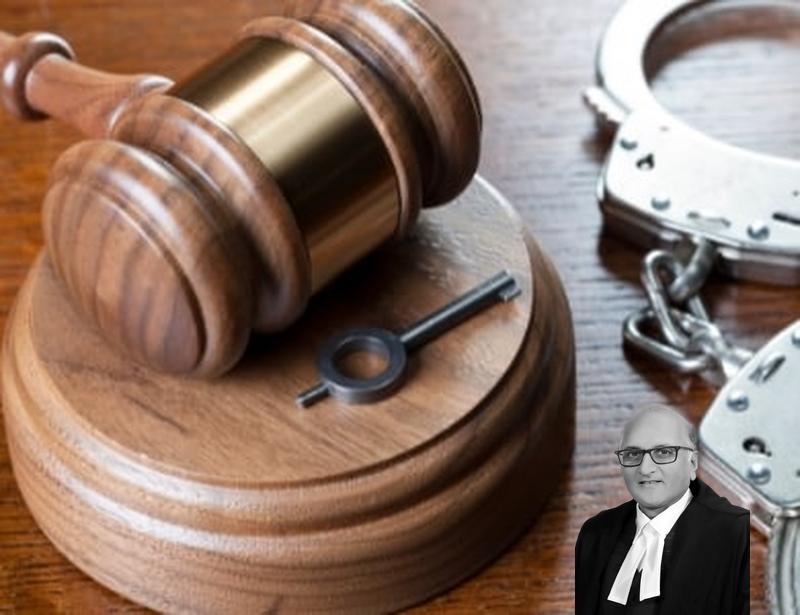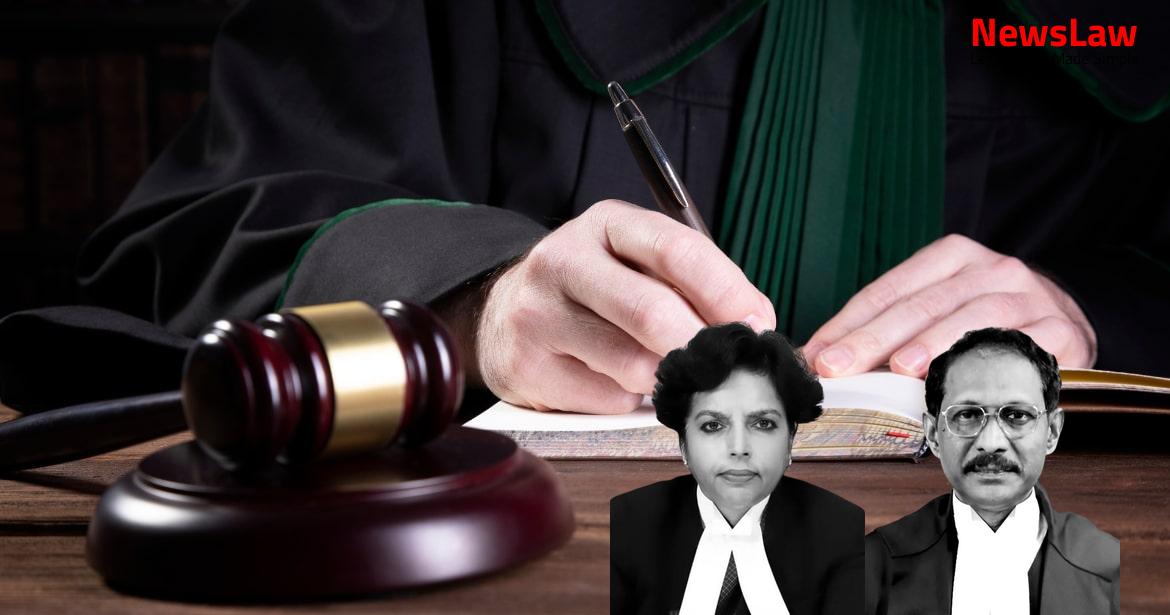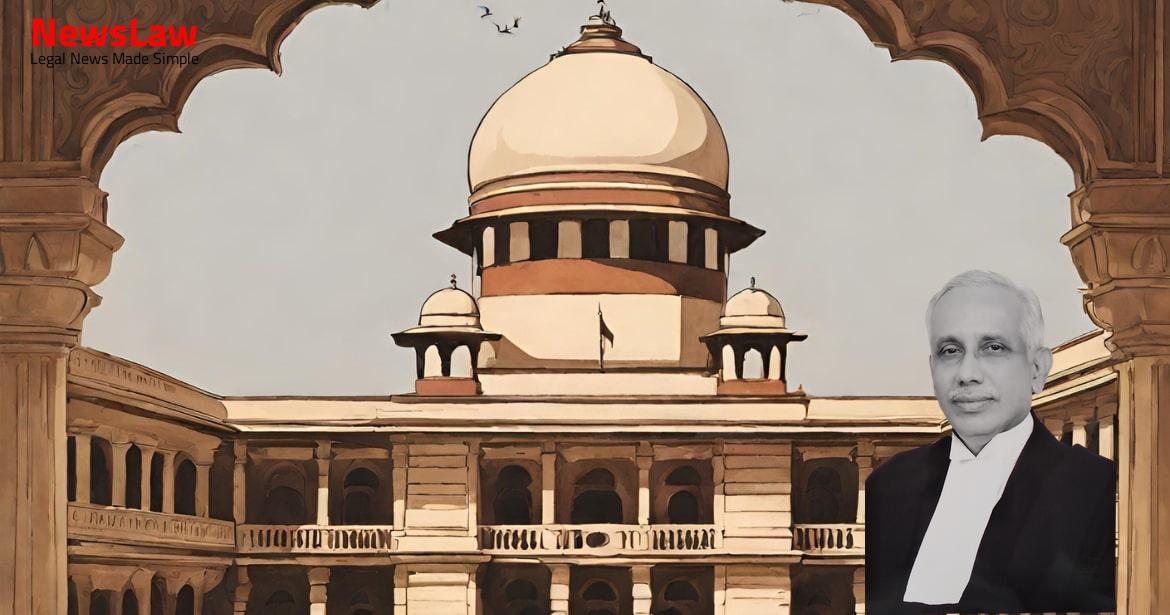This appeal, at the instance of M/s Unibros (“appellant”, hereafter), registers a challenge to the judgment and order dated 9 December, 2019 in FAO (OS) 229/2010 passed by the High Court of Delhi (“High Court”, hereafter) dismissing an appeal carried by the appellant under section 37 of the Arbitration and Conciliation Act, 1996 (“the Act”, hereafter). Disputes and differences emerged between the parties owing to such delay, which were subsequently referred to an Arbitrator (“Arbitrator”, hereafter) for resolution. 2,00,00,000.00
(Rupees two crore) be granted as redress for the loss of profit endured due to the appellant’s protracted retention on the contract without any corresponding increase in monetary benefits earned. Applying Hudson’s formula, the Arbitrator arrived at the final compensation for loss of profit, the computation of which is outlined below: b) Aggrieved by the aforesaid First Award, primarily to the extent it awarded Rs.1,44,83,830.00 towards loss of profit to the appellant, the respondent filed an objection under section 34 of the Act before the High Court impugning the decision pertaining to Claim Nos. 10 & 11 were rejected on the ground that no sufficient evidence had been placed on record by the respondent indicating increase in the prices/rates for the work executed after the stipulated contract period and also on account of establishment, machinery, centering/shuttering etc., Claim No.12 was allowed by the arbitration (sic, arbitrator) without even considering whether the respondent has placed credible and reliable evidence as required to be proved.
Since the award passed by the arbitrator is set aside to the aforesaid extent, the award of interest in Claim No 13 in respect of the amount of Claim No 12 also stands set aside and quashed and the same are remitted for reconsideration and decision.
Employing the doctrine that within a contract, gains prevented qualify as loss sustained, the Arbitrator observed that the appellant was not required to establish the exact amount of gain or loss with absolute certainty; instead, presenting fairly persuasive and the best available evidence under the particular circumstances of the case would suffice.
The learned Single Judge of the High Court vide judgment and final order dated 25 February 2010 allowed the objection under Section 34 and rejected the appellant’s claim under Claim No 12 with an observation that there was no sufficient evidence presented by the appellant to establish the claimed loss of profit; the lack of records regarding the alleged utilization of men, material, machinery, overheads, and other resources in the contract performance that could have otherwise been used for other profitable contracts raised doubts about the legitimacy of the claimed losses under Claim No 12. In the facts and circumstances of the case, I award costs of Rs.50,000/- in favour of the petitioner and against the respondents… Accordingly, in the facts of the present case, I deem it fit to award interest on the costs.” e) Dissatisfied with the findings of the learned Single Judge, the appellant preferred an appeal before the Division Bench of the High Court under Section 37 of the Act. Delhi Development Authority, learned counsel submitted that the arbitrator is the sole judge of the quality and quantity of evidence and the High Court, under section 34 of the Act, cannot act as a first appellate or a revisional court by interfering with arbitral awards in the absence of perversity. However, in cases where an arbitrator exceeds the terms of the agreement or passes an award in the absence of any evidence, which is apparent on the face of the award, the same could be set aside.” c)
According to Section 34, an award cannot be modified but can only be set aside under specific grounds outlined in the provision. vs State of Gujarat was relied upon to submit that a contractor is entitled to damages for loss of expected profit on the remaining work and only a broad evaluation is required to assess the amount of damages instead of going into minute details; and e) Hudson’s formula has received legal acceptance and is generally used by courts and other judicial bodies in awarding loss of profit. Urging this Court to dismiss the appeal and confirm the decisions of the Division Bench as well as the Single Judge, the ASG advanced the following submissions: a) The present case being that of delay simpliciter, Hudson’s formula will have no application to award any amount for loss of profit without the aggrieved party leading any evidence as a condition precedent to the application of the said formula. d)
In the present case, the ASG submitted, no evidence was led by the appellant, far less, any credible or cogent evidence, to prove that it was capable of earning such price elsewhere by way of any other contract that was available to it at that time, which it could not execute due to prolongation of the contract; such an award, being perverse, conflicts with the public policy of India under Section 34(2)(b)(ii) of the Act.
10 and 11, what other evidence could possibly justify awarding loss of profit under Claim No 12?
The appeal is directed towards dismissal of the appellant’s claim for compensation relating to loss of profits (Claim No 12). The contentions advanced on behalf of the appellant tasks us to resolve a recurring issue which, while not unprecedented, has consistently confronted the courts leading it to navigate various circumstances under which a claim for loss of profit may be allowed in cases of delay simpliciter in the execution of a contract. What is for public good or in public interest or what would be injurious or harmful to the public good or public interest has varied from time to time.
Case Title: UNIBROS Vs. ALL INDIA RADIO
Case Number: C.A. No.-006895-006895 / 2023



